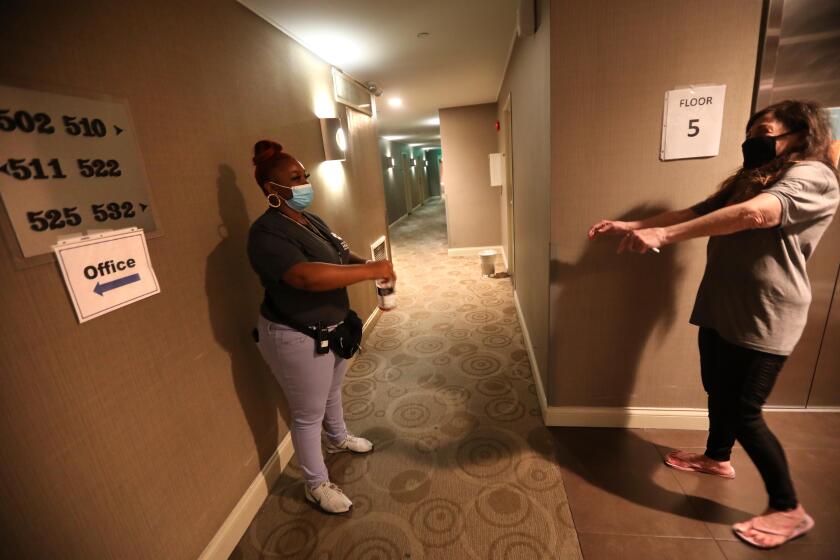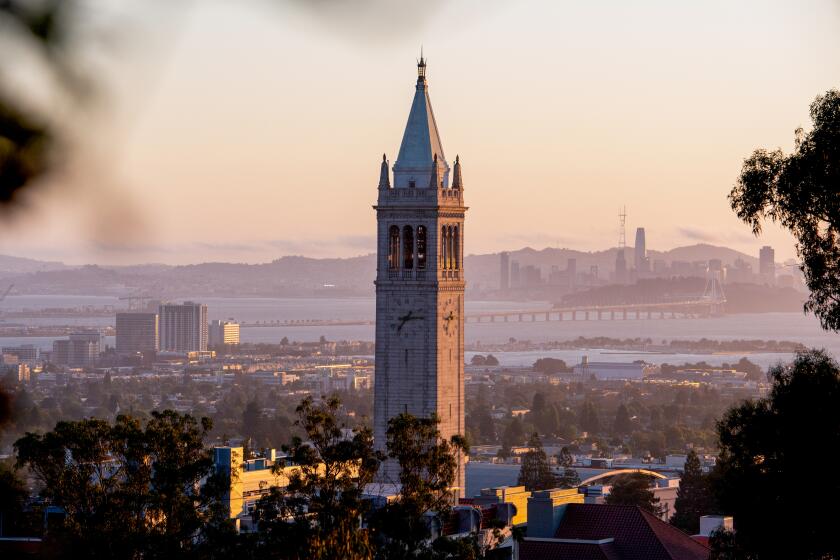Can UC Berkeley plan to house homeless people inspire other campuses to tackle the crisis?
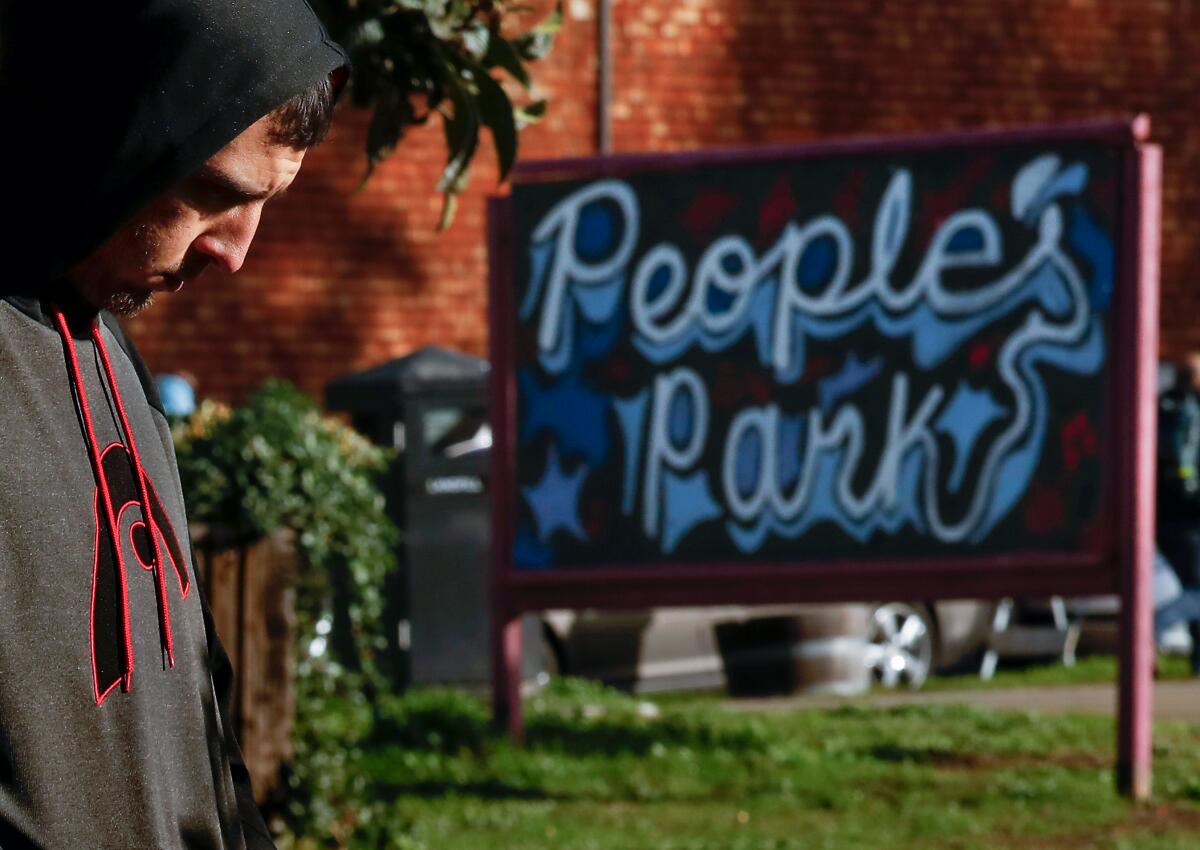
- Share via
In a partnership unique in American higher education, UC Berkeley and city and nonprofit collaborators unveiled plans Wednesday to provide interim housing at a converted motel, as well as meals and social services, to unsheltered people sleeping in the iconic People’s Park.
The announcement marks a major step forward in the four-year journey to repurpose the park — one of California’s most contested pieces of land with a half-century history of protests and conflict — into space for badly needed housing for students and low-income community members. About 60% of the 2.8-acre park will remain open green space, and a memorial to its storied history will be erected.
The plan came together under two leaders — Berkeley Mayor Jesse Arreguín and UC Berkeley Chancellor Carol Christ — who took gutsy steps to reimagine People’s Park as a way to tackle the twin crises of homelessness and a student housing crunch.
Unlike previous Berkeley mayors who were hesitant to change the iconic park, Arreguín supported the campus’ desire to develop the land. And Christ, despite struggling with a major campus budget deficit, committed funds to hire a social worker for the park and housing and services for unsheltered people, even though addressing homelessness is not generally seen as a university responsibility.
“It begins with partnership … and it also begins with the university’s accepting that this is our responsibility to address the tragedy of homelessness in our midst,” Christ said during a news conference Wednesday when asked whether the Berkeley model could be replicated across the state.
But before construction begins this summer, Christ had pledged that housing and a daytime gathering place would be offered to those living in the park — a number that fluctuates but is thought to currently number about 55.
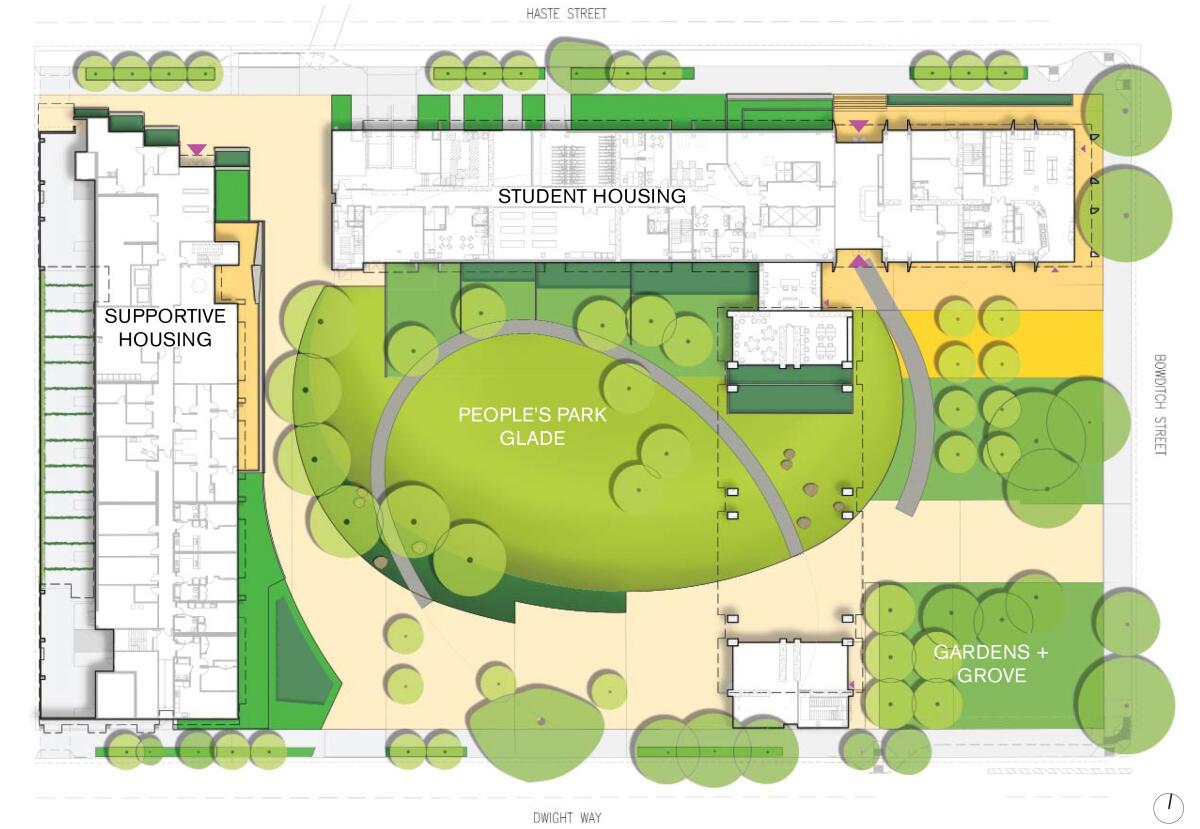
On Wednesday, the plans to do so were detailed by representatives from the campus, the city of Berkeley and local nonprofit groups. The city and campus have hammered out a deal to lease 42 rooms for 18 months at the Rodeway Inn for those living in the park. The accommodations will feature a recently remodeled private room, kitchenette and bathroom; linens and toiletries; housekeeping services; and access to laundry facilities.
Project Roomkey, a state program backed by federal dollars, was intended to house homeless people during the pandemic. But it never got close to its goal.
A local nonprofit, Abode Services, will offer residents daily meal service, access to healthcare and counseling, transportation support and assistance in finding permanent housing. The city will cover the costs of the lease and nonprofit services for 12 months, using a $4.7-million state grant earmarked to help people living in encampments find safe and stable housing. UC Berkeley has committed $2.2 million to cover the last six months.
In addition, the First Presbyterian Church of Berkeley plans to establish a daytime drop-in center on its property. Another local nonprofit, Village of Love, will provide meals, mental health counseling, shelter referrals, assistance in securing ID cards and other documents, public benefits and housing to needy community members. Those services will be funded by a two-year, $500,000 grant from UC Berkeley and $250,000 from the city.
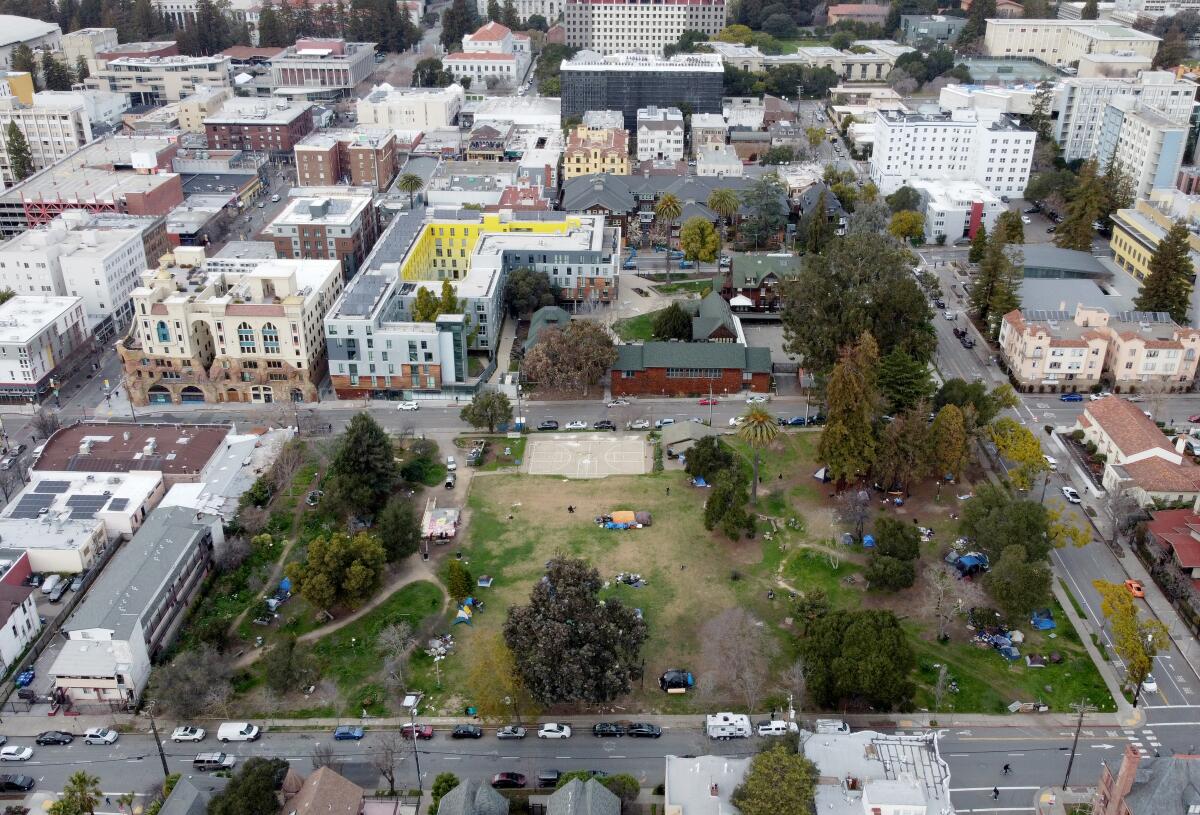
“We’re proud to honor the legacy of People’s Park and better meet the needs of our community through an effort that’s deeply reflective of Berkeley’s values,” Arreguín said in a statement. “This partnership will put a roof over the heads of those living in People’s Park, instead of simply pushing them from one neighborhood to another.”
A study by the UC Berkeley Goldman School of Public Policy led to the idea for a daytime drop-in center after researchers interviewed unhoused community members at the park and found a strong desire for a safe place to rest and receive services.
Construction of the student housing units, which will include 1,100 beds, is set to begin this summer. Christ has called the severe shortage of student housing one of the biggest threats to the university’s long-term future — and was a factor in litigation that is threatening to force Berkeley to cut its in-person enrollment this fall by more than 2,600 students.
A California Supreme Court ruling upholding an enrollment cap on UC Berkeley will force the campus to offer hundreds of incoming students admission for online classes for fall or deferred enrollment next spring.
The 100 units of permanent supportive housing for formerly unhoused and low-income community members will be developed and operated by a local nonprofit, Resources for Community Development. Supportive services will be provided by LifeLong Medical Care.
But when the park is fenced off and closed once construction begins, it’s unclear whether protesters will rally to take back the space as they have in the past. When the project was first announced in 2018, some of the unhoused people in the park welcomed it while others objected, saying it would obliterate the space’s rich history and destroy the community bonds forged over communal feedings, gardening and cultural events.
The park burst into the national spotlight in 1969, when hundreds of people hauled sod, trees and flowers to a scruffy lot that the university intended to build on and proclaimed it their own People’s Park. When UC fenced the public out a few weeks later, more than 6,000 protesters marched there and were pushed back by law enforcement using tear gas and buckshot. The bloody battle left one student dead, a person blinded and scores of others injured and arrested.
Ruben Lizardo, UC Berkeley’s director of local government and community relations, said the housing project would only enhance the park’s legacy. Just as the park played a central role in the free speech movement and protests against the Vietnam War a half-century ago, he said, it can now serve as a model for collaboration over the homelessness crisis.
“It really adds to the legacy of the park to be a place to tackle the biggest issues of the day,” Lizardo said.
Ari Neulight, UC Berkeley’s homeless outreach coordinator who has worked in the park since 2017, said mixed feelings about the space remain today. Many people he works with in the park say their two main desires are safe and affordable housing and a drop-in center for rest, food and services.
But there’s no guarantee that meeting those needs will defuse all opposition to the housing project.
“The park is a complicated, contested space that everyone has an opinion about,” Neulight said. “No matter what happens at the park, there will always be a range of opinions.”
More to Read
Sign up for Essential California
The most important California stories and recommendations in your inbox every morning.
You may occasionally receive promotional content from the Los Angeles Times.
